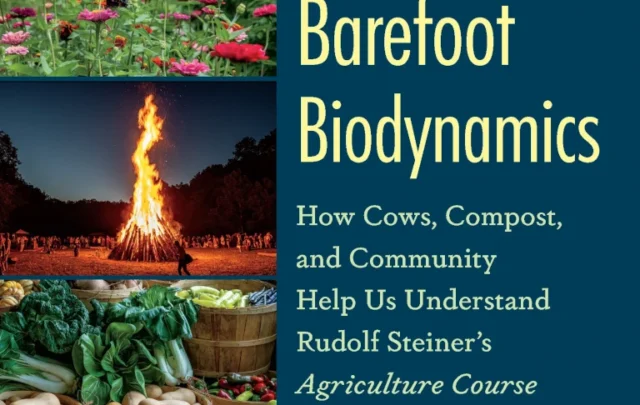
Photo by Dana / Flickr.
Snow covered most of the ground at El Garden, a community garden in the north Brooklyn neighborhood of Bushwick. The exception was the area around its three compost bins, shoveled out and made accessible to the six people who were working there. One of them was Gabrielle Mason. She wore a puffy pink jacket and kept her earbuds in while she scooped and sifted the bins’ contents. A year ago, she had never composted. Now, at 16 years old, she is the group’s lead composter and plans to study environmental issues.
Mason and the group form part of BK Rot, a youth-run composting service. Bushwick has a 31.4 percent poverty rate—compared to 15.8 percent nationally—and a population that is 65.4 percent Hispanic and 37 percent foreign-born. Mason began working at BK Rot last summer, but the program started about three years ago. Sandy Nurse, a Bushwick resident, came up with the idea of collecting local compost by bike when she was supporting her own social and economic justice work by making bike deliveries. The crux was that the workers would be young people from the neighborhood, where good jobs with fair wages are hard to come by, especially for youth.
Nurse developed BK Rot with Renee Peperone, a long-time Bushwick resident and environmental activist who describes herself as an “avid composter.” They began with seven participating households and one biker. They now have about 40 member households, each of which pays $15 a month for weekly pick-up service and a supply of composting bags. That money, along with some grants, goes toward paying the young workers.

Gabrielle Mason at El Garden compost bins. Photo by Rebecca Nathanson.
Youth make up the majority in BK Rot, and Nurse and Peperone aim to slowly withdraw from the operation until the youth are running it on their own in a cooperative structure. The oldest of the workers is a 20-year-old biker; at 16, Mason is the youngest. Between them in age are a 17-year-old biker and the 19-year-old operations manager, Mason’s cousin Iyeshima Harris. They work between three and 10 hours a week. The group operates in two locations: its corner of El Garden and Know Waste Lands, a new composting site and wildlife restoration garden a few blocks away. Originally two vacant lots, the space that became Know Waste Lands was transferred to the New York City Parks Department after an almost-two-year campaign by BK Rot. It now has a four-year lease on the garden.
BK Rot is a product of its environment. Although Peperone says that the goal is for BK Rot to become a replicable model, Bushwick ultimately determined the organization’s key components of employing young people of color and creating and preserving public space for community use. Bushwick faces a 14.3 percent unemployment rate, nearly 10 percentage points higher than the national rate. Youth unemployment is not broken down by borough, but the Community Service Society of New York, an advocacy-based research organization, reported the citywide unemployment rate for people aged 16 to 24 as 23 percent in 2010. “We know that jobs would be extremely beneficial in Bushwick, but it’s a largely Latino and black community where the young people have limited resources when it comes to work,” explains Antonio Reynoso, the New York City councilmember who represents the neighborhood.
Bushwick is also gentrifying rapidly with landlords often pressuring long-term residents to leave. In the face of rising rents and displacement, public space becomes even more essential to preserve community. “Many community members definitely feel that a change is coming or change has come,” says Reynoso. “But these community gardens really give them an opportunity to take back the community in a sense. They can have a piece of property that otherwise would be a building or luxury housing, and, instead, it’s theirs. It’s the community’s.”

Sandy Nurse, Gabrielle Mason, and BK Rot volunteers work in El Garden. Photo by Rebecca Nathanson.
The combination of BK Rot’s many aspects—creating green jobs for young people, raising local awareness about composting, and opening up public space—makes it a useful example of creatively addressing large-scale problems, even on a small scale. As Nurse explains, “What we’ve been doing is really demonstrating that in public space, there are options and potential for the community to develop and pilot and experiment with ways in which we can take care of our communities.”
With less than half a dozen youth workers, BK Rot has limited ability to tackle Bushwick’s high youth unemployment and increasing gentrification. “BK Rot is one surfer in the entire ocean,” says Reynoso. Still, its impact has been felt throughout the neighborhood, both in the tangible products of community gardens and compost and in the youth-run business model on which it was founded. For the youth already involved, that impact is also felt in the way they’ve discovered and dived into passions they never knew existed. “It’s interesting. It’s different,” says Mason, standing on a patch of dirt in El Garden. “Nobody ever does this—well, I haven’t ever done this before.”





